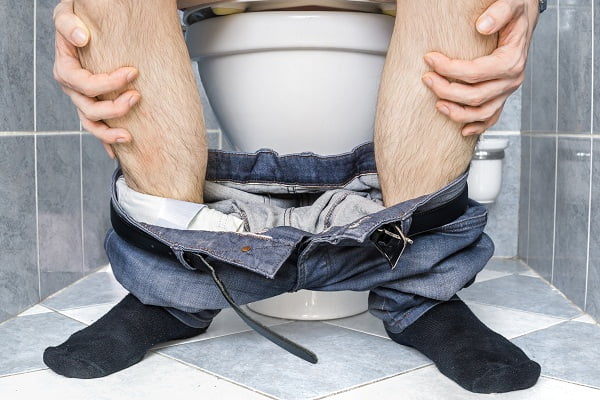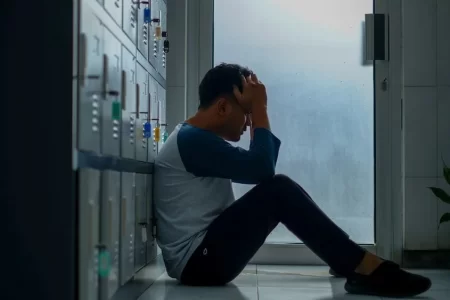What Is Hematochezia (Blood in Stool)?
- Updated on: Jul 15, 2024
- 2 min Read
- Published on Apr 19, 2021

What is hematochezia?
Hematochezia, also called pooping blood is a medical term for rectal bleeding. It is a condition characterized by the passage of fresh blood from anus and is indicative of bleeding in the lower gastrointestinal tract – the colon or rectum or from hemorrhoids.
The term ‘hematochezia’ is rarely used. Often, the term ‘bright red blood in the stool’ is used and understood.
The severity of hematochezia depends on the amount and duration of bleeding. Severe cases require urgent medical treatment and hospitalization. A patient may be given blood transfusion in order to retain the blood volume in the body. Mild cases can be managed in a clinical setting at a doctor’s office without any need for hospitalization.
Most cases of hematochezia are mild with only small blood quantities passing through the anus, usually visible on the toilet papers. The main purpose in managing the bleeding is to diagnose and manage the underlying cause of bleeding.
Though blood in stool can indicate a serious problem, it doesn’t always mean that you have a major complication or disease. Here’s what you should know about the possible causes of bloody stools.
What causes blood in stool (Pooping Blood)?
In about 90% of the cases of hematochezia, the bleeding source is in the colon. The amount and severity of bleeding can vary.
Hemorrhoids can cause minor bleeding, whereas conditions such as diverticular disease (diverticulitis) and vascular diseases may cause severe and life-threatening bleeding. Hematochezia can also be a symptom of colorectal cancer.
Causes of bright red stools can be:
- intestinal infections
- recent trauma
- abnormal growths in colon called polyps
- ischemic colitis
- diverticulitis
- colon cancer
- anal fissure
- hemorrhoids
- crohs’s disease
- ulcerative colitis
- ulcers
- anal cancer
- radiation therapy
- severe constipation
- Esophageal problems: Veins of the esophagus or tears in the esophagus can cause severe blood loss.
Hemorrhoids and hematochezia
Hemorrhoids are one of the most common reasons of a little amount of blood in stool (pooping blood). Generally, hemorrhoids result in red-bright blood coats in the stool after bowel movements or blood may be visible on the toilet paper. In very rare cases of hemorrhoids, bleeding may be massive.
Hematochezia as a Symptom of Cancer
Malignant cancers may cause pooping blood. This is generally not severe but is enough to cause changes in the color of your stool. The variations in color can tell us where the blood is coming from.
If bleeding is in the right-side of the colon, the stools will be more maroon or purple in color since the bleeding is occurring far away from the rectum. If it is colon cancer, it may not result in much discoloration.
In most cases, patients who have colorectal cancers don’t necessarily have blood in stools (pooping blood). Hematochezia is in fact a rare symptom in such patients, but it is an important sign. Blood in stool might be the earliest and sometime the only symptom of colon cancer in early stages in some patients.












